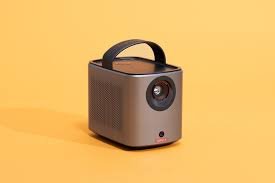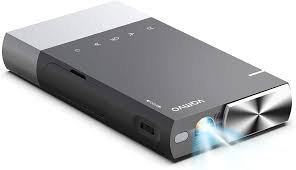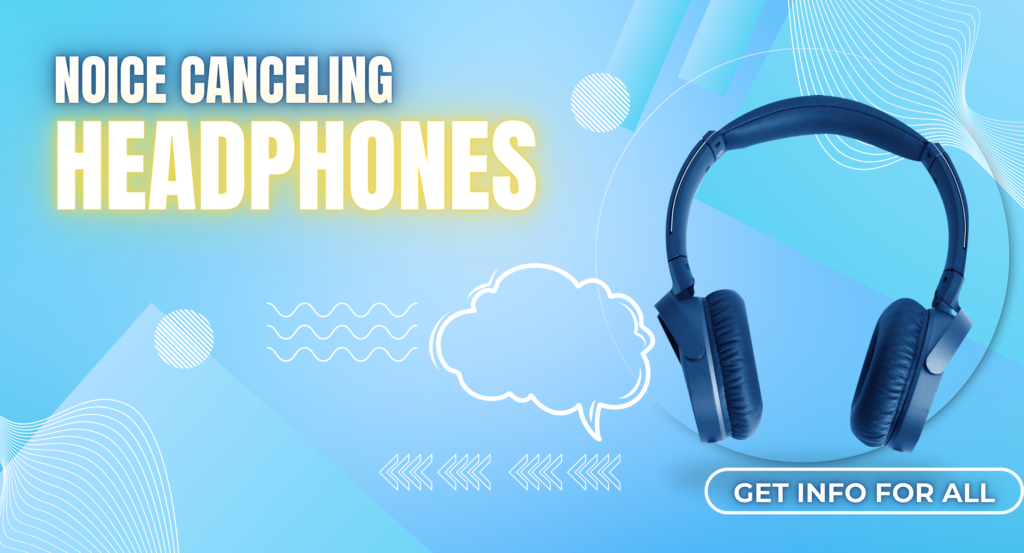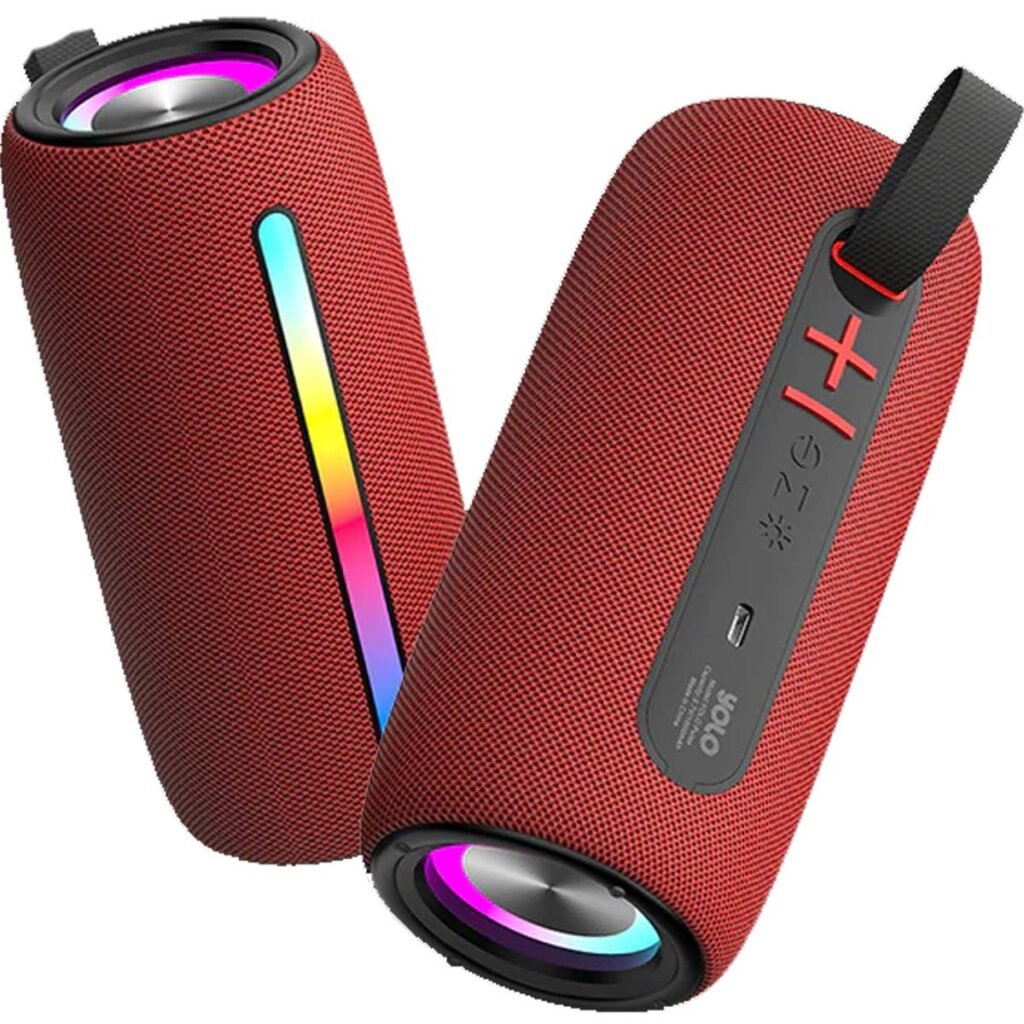Portable Mini Projector Review: Your Ultimate Guide to Home Entertainment
In the age of digital media, where streaming content is available at our fingertips, the demand for versatile viewing solutions has never been higher. Enter the portable mini projector—an innovative device that brings the cinema experience into the comfort of your home or on the go. This review will delve into the features, performance, and overall value of portable mini projectors, helping you determine if this gadget is worth your investment. Check out the Best Portable Mini Projectors – Get Info For All.
What is a Portable Mini Projector?
A portable mini projector is a compact, lightweight device that projects images and videos onto a surface, usually a wall or screen. Unlike traditional projectors, which can be bulky and stationary, mini projectors are designed for mobility. They come equipped with advanced technology, allowing for high-quality video output in a small form factor. Whether for business presentations, movie nights, or gaming sessions, mini projectors are versatile gadgets that cater to various entertainment needs.

Key Features
1. Size and Portability
One of the most significant advantages of mini projectors is their size. Most weigh less than 2 pounds and can easily fit into a backpack or carry-on. This portability makes them perfect for travel, outdoor movie nights, or even impromptu presentations.
2. Resolution and Image Quality
Resolution is a critical factor in any projector’s performance. Many portable mini projectors offer HD (1280 x 720) resolution, while some even reach Full HD (1920 x 1080) and 4K capabilities. The image quality will also depend on the projector’s brightness, measured in lumens. A brighter projector (typically above 1,000 lumens) will perform better in well-lit environments, while lower lumens are sufficient for dark rooms.
3. Connectivity Options
Modern mini projectors offer a range of connectivity options, making them compatible with various devices. Look for projectors with:
- HDMI Ports: For connecting laptops, gaming consoles, and Blu-ray players.
- USB Ports: To play media directly from flash drives or external hard drives.
- Wireless Connectivity: Many models support Wi-Fi and Bluetooth, enabling seamless streaming from smartphones, tablets, and smart devices.
4. Battery Life
For truly portable use, battery life is crucial. Many mini projectors come with built-in batteries that can last anywhere from 2 to 5 hours on a single charge. This feature is especially beneficial for outdoor movie nights or travel, where access to power outlets may be limited.
5. Built-in Speakers
While external speakers often provide superior sound quality, many mini projectors come equipped with built-in speakers for convenience. The audio quality may not match high-end sound systems, but they usually suffice for casual viewing.
6. User-Friendly Interface
Most portable mini projectors feature intuitive controls and user interfaces, making it easy to navigate through settings, connect devices, and adjust display options. Some models even come with remote controls for added convenience.
Performance Analysis
Image Quality
The performance of a mini projector is primarily determined by its image quality. When reviewing various models, we found that projectors with higher resolutions and brighter outputs delivered sharper and more vibrant images. For instance, the Anker Nebula Capsule boasts a resolution of 854 x 480, which, while not full HD, still provides decent clarity for casual viewing. On the other hand, the ViewSonic M1 Mini Plus, with its 1280 x 720 resolution, offers a more satisfying experience for movies and presentations.
Brightness
Brightness can make or break your viewing experience. Projectors with lower lumen ratings struggle in well-lit rooms, while brighter models can maintain image quality even in ambient light. For example, the Kodak Luma 350 features 350 lumens, making it suitable for darker environments but less effective in daylight. Conversely, the Epson EF-100, boasting 2000 lumens, shines in various lighting conditions, providing clear images regardless of the setting.
Sound Quality
Sound quality is often an overlooked aspect of projectors, but it plays a crucial role in the overall experience. Many mini projectors have built-in speakers, which can be surprisingly decent for their size. However, for a more immersive experience, connecting to external speakers via Bluetooth or an audio cable is recommended. The Samsung The Freestyle, for instance, features 5W speakers that deliver clear sound, but pairing it with a soundbar can significantly enhance the audio experience.
Connectivity and Setup
Setting up a mini projector is usually straightforward. Most models support plug-and-play functionality, allowing for quick connections to various devices. The inclusion of HDMI and USB ports caters to different user needs. Wireless connectivity is a game-changer, letting users stream content directly from their devices without cumbersome cables. The Baseus 4K Portable Projector excels in this regard, allowing easy streaming via Wi-Fi from smartphones and laptops.
Battery Life
Battery life varies widely among portable mini projectors. While some models boast up to 5 hours of playback on a single charge, others may fall short at around 2 hours. For instance, the Kodak Luma 150 offers about 2 hours of battery life, making it ideal for short presentations but less suited for movie marathons. In contrast, the Nebula Capsule provides up to 4 hours, making it a more versatile choice for longer viewing sessions.

Pros and Cons
Pros
- Portability: Lightweight and easy to transport, making them ideal for travel.
- Versatility: Suitable for various uses, including home entertainment, presentations, and gaming.
- Convenience: Easy setup with multiple connectivity options.
- Affordable: Generally more budget-friendly than traditional projectors.
Cons
- Limited Brightness: Some models may struggle in well-lit environments.
- Sound Quality: Built-in speakers may not provide sufficient audio quality for a cinematic experience.
- Battery Life: Varies greatly between models, with some lacking the longevity for extended use.
Conclusion
The portable mini projector is a game-changer for anyone seeking a versatile and convenient way to enjoy media. While they may not entirely replace traditional projectors for large venues, they offer a unique solution for home entertainment, travel, and casual use. With various models available, it’s essential to consider your specific needs regarding resolution, brightness, battery life, and connectivity options. Check out the Best Portable Mini Projectors – Get Info For All.
In our review, models like the Epson EF-100 and Samsung The Freestyle stand out for their impressive performance and versatility, while budget options like the Kodak Luma 350 and Anker Nebula Capsule provide great value for casual users.
Whether you’re hosting a movie night under the stars, delivering a presentation on the go, or simply enjoying a gaming session, a portable mini projector can enhance your experience. As technology continues to evolve, these devices are likely to become even more sophisticated, offering greater convenience and performance for all your entertainment needs.
If you’re considering adding a mini projector to your gadget collection, we hope this review has provided the insights you need to make an informed decision. Happy projecting! Check out the Best Portable Mini Projectors – Get Info For All.


